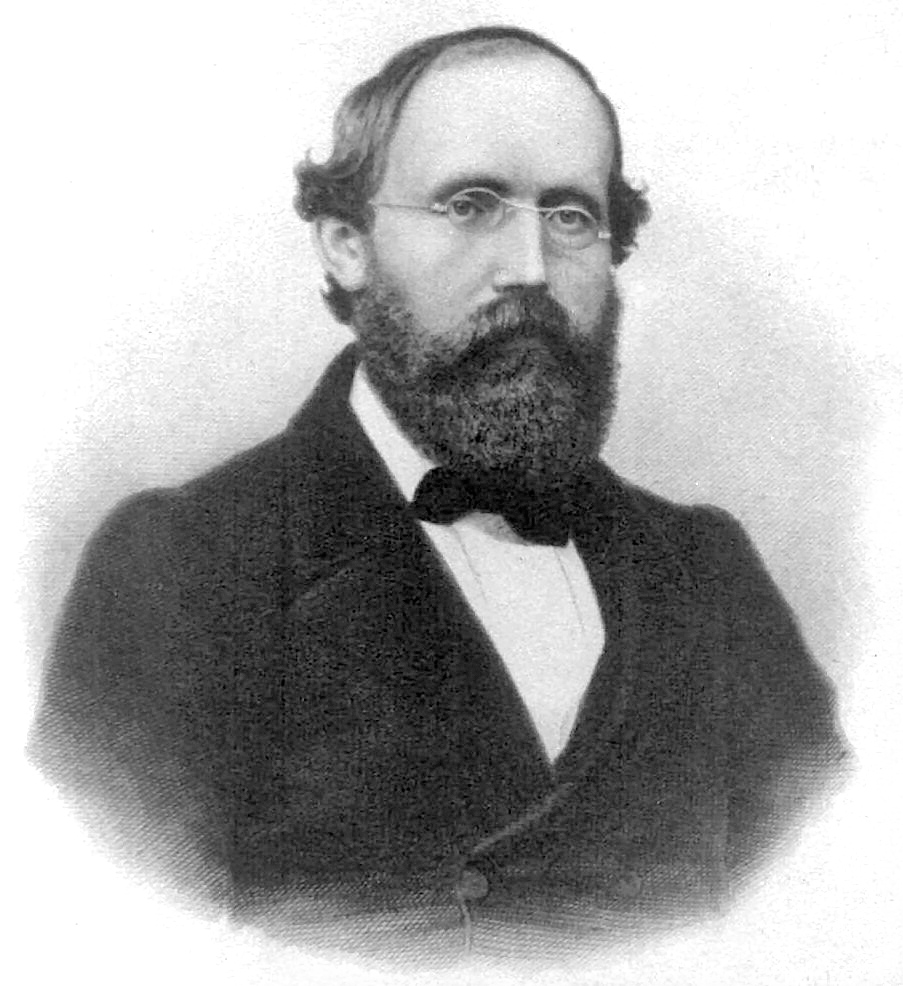
Biografia estratta da http://www.andrews.edu/~hurlow/bioRiema.html
(1826-1866) Georg Friedrich Bernhard Riemann was born on September 17, 1826 in Breselenz, Germany to Georg Fredrich Bernhard Riemann and Charlotte Ebell. Georg was a quit child who had a terrible fear of public speaking, but he was bright and loved to solve puzzles. He grew up in the home of a pastor during a time of poverty.
Along with his four siblings, he fought hunger and malnutrition. But despite all these problems, his family was close. Riemann was taught by his father until he reached the age of 14. His first experiave with public schooling began at the Hanover Gymnasium. After two years he was transferred to the Gymnasium at Lüneburg. While attending Lüneburg, he became good friends with a teacher who recognized Riemann's mathematical talents. His teacher permitted Riemann the use of his private library, allowing Riemann to explore more complex mathematics by reading such works done by Legendre and the classic works of Gauss. After leaving the Gymnasium, Riemann spent a year attending Göttingen University before moving on to Berlin.
During his stay in Berlin, Riemann studied under some of the greatest German mathematicians of his time, including Jacobi, Steiner, and Einstein. He learned all about the new discoveries in mathematics from these men, then returned to Göttingen to finish his doctoral word in 1849. Riemann submitted his thesis in 1851 to Gauss, an impressed Gauss said that Riemann possessed a "Gloriously fertile originality." Thanks to Gauss's recommendation Riemann was appointed to a position at Göttingen. During his time there, he wrote a thesis on mathematics. Published in 1854, his thesis was called Über Hypothesen welche der Geometrie zu Grunde liegen, which means Over hypotheses which Geometry to reason are situated. This document eventually went on to became a classic of mathematics.
In fact, Albert Einstein used its results in his relativistic theory of gravitation. After Gauss's death in 1855, Dirichlet took over his position at Göttingen, but was later succeded by Riemann. At this time Riemann was suffering from a case of tuberculosis. But Riemann pressed on and spent his time traveling between Germany and Italy while fighting to get better. Riemann lost his fight and died in Selasca, Italy on July 20, 1866.
![]()

